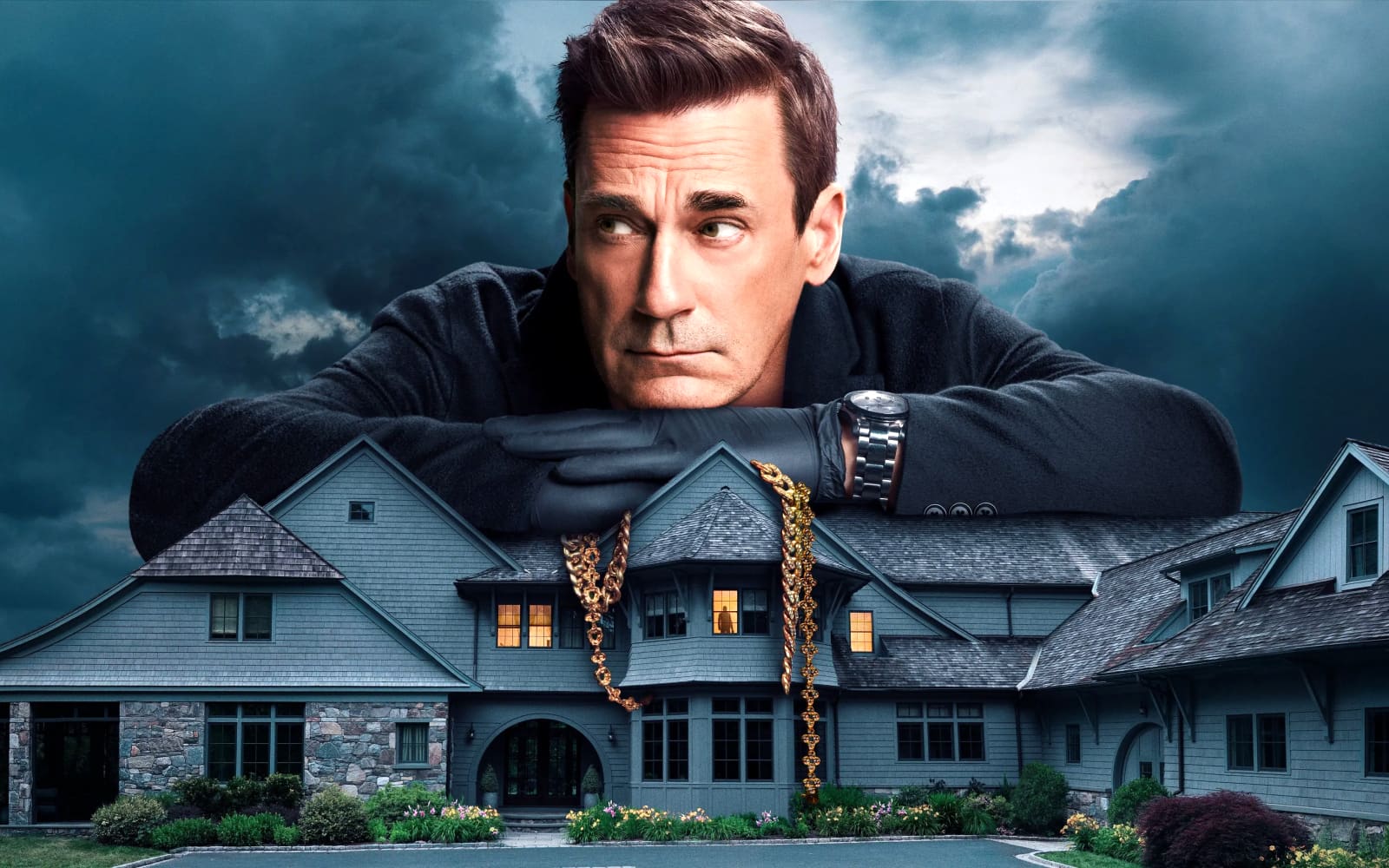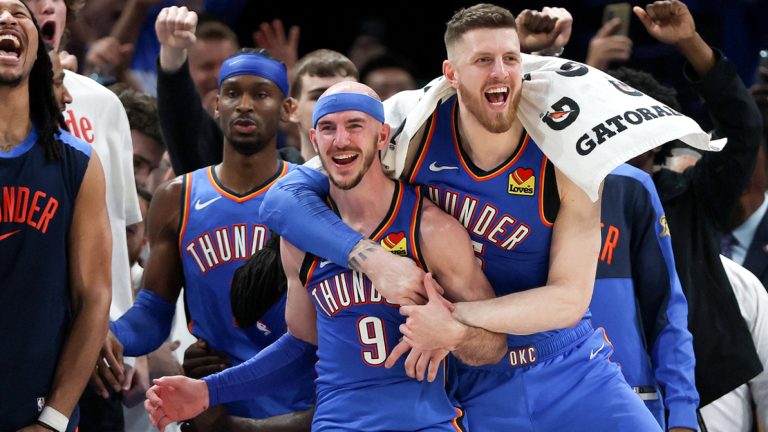One of the common metaphors associated with life in the modern West is the ladder. For those just beginning their career on the bottom rung, the goal of the next forty years is to climb as high up that ladder as possible. On a more collective scale, the American Dream, as it is understood, is also a ladder. The “Dream” that politicians and pundits have embedded into our cultural psyche is one of achievement. This ladder is apparently open to all, regardless of where you start. For those with enough talent and hard work, the top rungs offer an almost unlimited amount of pleasure that only money can buy. Failure to climb the ladder leads to a life of misery.
We live in a state of flux—pretending that the American Dream is our inheritance while deeply frustrated that we cannot attain it.
For anyone that has lived long enough, we know that this ladder is an illusion. Sure, hard work can lead to success, but life is one of tradeoffs. The high paying job does not always fit well with the perfect family life. Deep friendships with lifelong friends can limit the mobility that is necessary to reach the highest rungs. Sickness, chance, and addiction are all lurking in the dark alleys of life, waiting to shake unsuspecting climbers from their perches.
This truth about our Western ladder to success sort of floats around in the background of our consciousness. We know the truth, but we hate admitting it. We want to feel like we are in control and that we can have the life we desire while also aware of the many traps that are set before us. We live in a state of flux—pretending that the American Dream is our inheritance while deeply frustrated that we cannot attain it.
Breaking the Illusion
Some of the best works of art expose this ladder for what it is. In Fitzgerald’s The Great Gatsby, the main character that throws lavish parties and tells stories of his days in WWI is found out to be a bootlegging swindler. In the 2007 film, There Will Be Blood, Daniel Day Lewis’s character slowly destroys himself and his adopted son as he pursues wealth in the oil fields of California. By the end, he is a murderous old man alone in his castle. This tradition of peering behind the veneer of success is continued in Apple TV’s new series Your Friends & Neighbors. In its first season, screenwriter Jonathon Tropper takes aim at the New York world of wealth and privilege. Thankfully for viewers, nothing is as it appears.
As the episodes tick by, the American Dream melts into a nightmare of sorts.
The main character of the series is Andrew Cooper (John Hamm), a wealthy hedge fund manager who lost his job and his family. “Coop,” as he is known by those around him, is a complex character. After graduating from Princeton, he followed the well-worn path to success that promised much more than it could deliver. He climbed the ladder of his profession, only to be forced out by his resentful boss at the height of his power. The large mansion that he bought in the most prestigious suburb is now home to his ex-wife and former best friend who stole that wife. The expensive golf club that has been his community is now an awkward place of tension where he is forced to mingle with those taking sides in the divorce.
Coop is a television character in the long line of complex criminals with endearing qualities. Like Tony Soprano twenty years ago, we see all the sides of his humanity—the darkness and the light. After Coop is faced with the mounting bills he can no longer pay, he begins stealing from his friends and neighbors. Since he is one of the privileged residents of the neighborhood, he understands that most of their belongings are superfluous—watches they never wear and paintings they bought only as status symbols. Rationalizing that they will neither miss nor care about their lost property, Coop begins pawning his friends’ belongings for quick cash that he uses to maintain his lifestyle. All the while, the cracks in his friends and family members’ lives begin to deepen as the whole town enters a disillusionment with their artificial lives. His ex-wife casually keys the car of someone at the golf club. A family friend, who is a powerful attorney, is secretly having an affair with her daughter’s boyfriend. As the episodes tick by, the American Dream melts into a nightmare of sorts.
Ecclesiastes and Disillusionment
While I didn’t plan it, I watched this series at the same time I was reading through a new book on Ecclesiastes by pastor and scholar Bobby Jamieson. To be honest, I never really connected with this Old Testament book in the past. A couple of years ago while attempting to teach it to the youth group at my church, I struggled to apply the author’s “wisdom” about the overwhelming vanity of life. If the world is meaningless, what is the point of anything? Sure, we must be aware of idols—but we still must live in this world that the author is so fed up with. The students and I walked away depressed.
The question of our life, therefore, is not how high we will climb but what we will do with our disillusionment. As the old saying goes, we become “bitter or better.”
Jamieson’s book, Everything is Never Enough, walked me through Ecclesiastes as a journey rather than a destination. Qoeheleth, or the “Teacher” who authored the book, instructs us in a fundamental truth about life. Like Your Friends & Neighbors, Ecclesiastes teaches us that disillusionment is inevitable in this life “under the sun.” At some point, each of us will realize that the ladder we were sold and told to climb doesn’t lead to fulfillment. While this ladder may lead us to good jobs and stable financial situations, all good things, it can never fulfill our deepest longings that are meant to lead us to God. The question of our life, therefore, is not how high we will climb but what we will do with our disillusionment. As the old saying goes, we become “bitter or better.”
At one point in the series, Coop reflects on the disillusionment he is facing. As he is robbing yet another friend’s home, he says this: “I was wrong about all the rules; it turns out there are no rules.” Coop, like many of us, thought that life was one of actions and results. Put in the work, get the result you are looking for. After losing it all, he knows better. Three thousand years ago or so, the author of Ecclesiastes learned the same thing. He sought all the wisdom he could and realized that it would one day vanish. He accumulated wealth and women only to find out that the rules he thought he was playing by were a farce. Disillusionment followed and he was forced to wrestle with the meaning of life.
While Your Friends & Neighbors isn’t a perfect show (there are too many sex scenes that seem unnecessary), the message is as old as humanity: the life we build is often not the life we want. This, however, is not the end of the story. More important than what we build is how we respond to reality when it smacks us in the face. Regardless of whether this disillusionment hits us in our twenties or our sixties, it has the power to destroy us or form us deeper into the image of God. Ecclesiastes represents the healthy type of formation. While the author begins the book thoroughly disillusioned with everything, he learns over time that God is sovereign and has a purpose for our lives. God’s works are eternal (3:14) and we can ultimately trust and follow our God even when we don’t understand (12:13-14). This type of disillusionment, far from destroying us, widens our view of life. During this journey, we learn that life is not about us, and that we are simply small (albeit important) players in the redemptive story of humanity. Disillusionment forces us to live in reality. Reality is where true peace lies.
Partially Formed Through Disillusionment
One of the great dangers of disillusionment is that we will respond improperly. Some simply give up, while most change just enough to alleviate some pain. This partially formed result only prolongs the disillusionment—often permanently. While we may become convinced that our marriages and careers will never be perfect, we continue living for smaller saviors—like vacations and the achievements of our children—to scratch the itch. This allows us to get through life, but never truly flourish.
Rather than facing reality, Coop creates his own truth that serves him better.
Your Friends & Neighbors is a picture of this partial formation. Throughout the series, Coop realizes what he has lost. In one scene, while Coop argues with his daughter, she asks him “what he knows about love?” In an outburst of raw emotion, he screams at her with the intensity only pain can bring. “I know what it is like to have it and I know how it tears you apart when you lose it!” He shouts. “I know what it is like to see the little girl who used to hold my hand every day grow up and roll her eyes at me and speak with such contempt it makes it hard for me to breathe.” At this moment, it seems like Coop is on the right path.
If Coop becomes aware of what he has lost, he also becomes incredibly cynical. During his nighttime robberies, he learns secrets about his friends that he uses to blackmail them for his own benefit. While we see glimpses of transformation as he learns to interact more honestly with his family, Coop embraces and justifies his new career as a thief. In doing so, he puts those he loves in danger and seems immune to the truth that there is a standard of morality. Rather than facing reality, he creates his own truth that serves him better. Throughout the series, it is hard to tell if he is being fueled by greed, anger, or fear. When his son tells him that he is “faking it until he makes it,” Coop responds with a telling response. “Well someday you are going to realize that pretty much everybody else is doing the same thing. That’s when things get truly terrifying.” Disillusionment can be scary and Coop has tasted the fear.
Heeding the Warning
At the end of Ecclesiastes, the author sums up what he has learned. “The end of the matter; all has been heard,” he writes. “Fear God and keep his commandments, for this is the whole duty of man. For God will bring every deed into judgment, with every secret thing, whether good or evil.” In other words, what matters in the end is our character.
What matters in the end is our character.
Life provides each of us with the opportunity to respond to disillusionment—to live in reality. Coop’s character could do so. His children desperately want his affection and even his ex-wife longs for attention from the man she has always loved. The problem with Coop as the series enters its second season is that his disillusionment has led to pride rather than humility. After losing it all and surviving, he believes that he has the power to create his own reality rather than submit to the one that took everything from him before. Sin, as it always does, has distorted his reality.
For Christians who can sit through some of the less tasteful elements of Your Friends & Neighbors, they will recognize a story as old as the Garden. Humans struggle to live within their God-ordained limits. After tasting all creation has to offer, the author of Ecclesiastes recognizes that the best thing we can do is to live with a humble reliance on God. While I don’t expect Apple TV will create a dramatic salvation for the main character, I suspect the second season will continue to be an entertaining case study on the dangerous vices disillusionment can produce when we fail to recognize our Creator.







